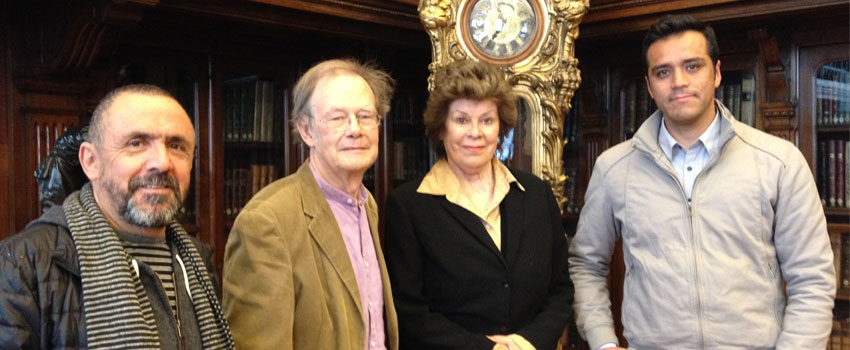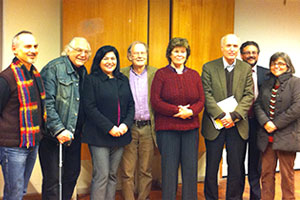- Culture and Extension
They present the book “El Párvulo, el Sonido y la Música” at the National Library

The second edition of the text was attended by the French pedagogue, Francois Delaland, one of the main architects of the current renewal of musical pedagogy oriented towards creative practice from early childhood.
Last Friday, July 25, the launch of the second edition of the book “El Párvulo, el Sonido y la Música” took place in the Ercilla room of the National Library, a publication of the Editorial Universidad de La Serena whose author is the researcher, teacher and pianist, Olivia Concha Molinari, corresponding member of the Chilean Academy of Fine Arts.
Present at the presentation of this book was the French pedagogue, François Delalande, who is responsible for theoretical research at the “Groupe de Recherches Musicales” in Paris and studies listening and sound production behaviors, in particular, of children. The manager of the U. de La Serena Publishing House, Alejandro Abufom, was also present.
The launch of the second edition of “El Párvulo, el Sonido y la Música” was sponsored by Editorial ULS, the National Board of Kindergartens (JUNJI) and the Music Institute of the Catholic University.
This activity was part of the XIX season of the International School of Guest Professors 2014 - which took place at the Institute of Music of the Pontifical Catholic University with the presence of the renowned French researcher.
 The book
The book
The musical approach of "El Párvulo, el Sonido y la Música", considers the traditional -dancing, singing, playing- but also proposes a pre-structured alternative by focusing the initial practice from the physical matter sound and its counterpart silence, as axes that will lead the child and the accompanying adult to discover the mechanisms that transform a spontaneous sound game into “music”, into “his music”. Experimenting and knowing the raw and pre-existing material of music, stimulating research in children, discovering the origin of sound as a physical process, scrutinizing the causes that originate it, observing the effects that they perceive, "listening to silence" , the experience is playfully problematized, clearing up unknowns raised by themselves or suggested by the adult.
